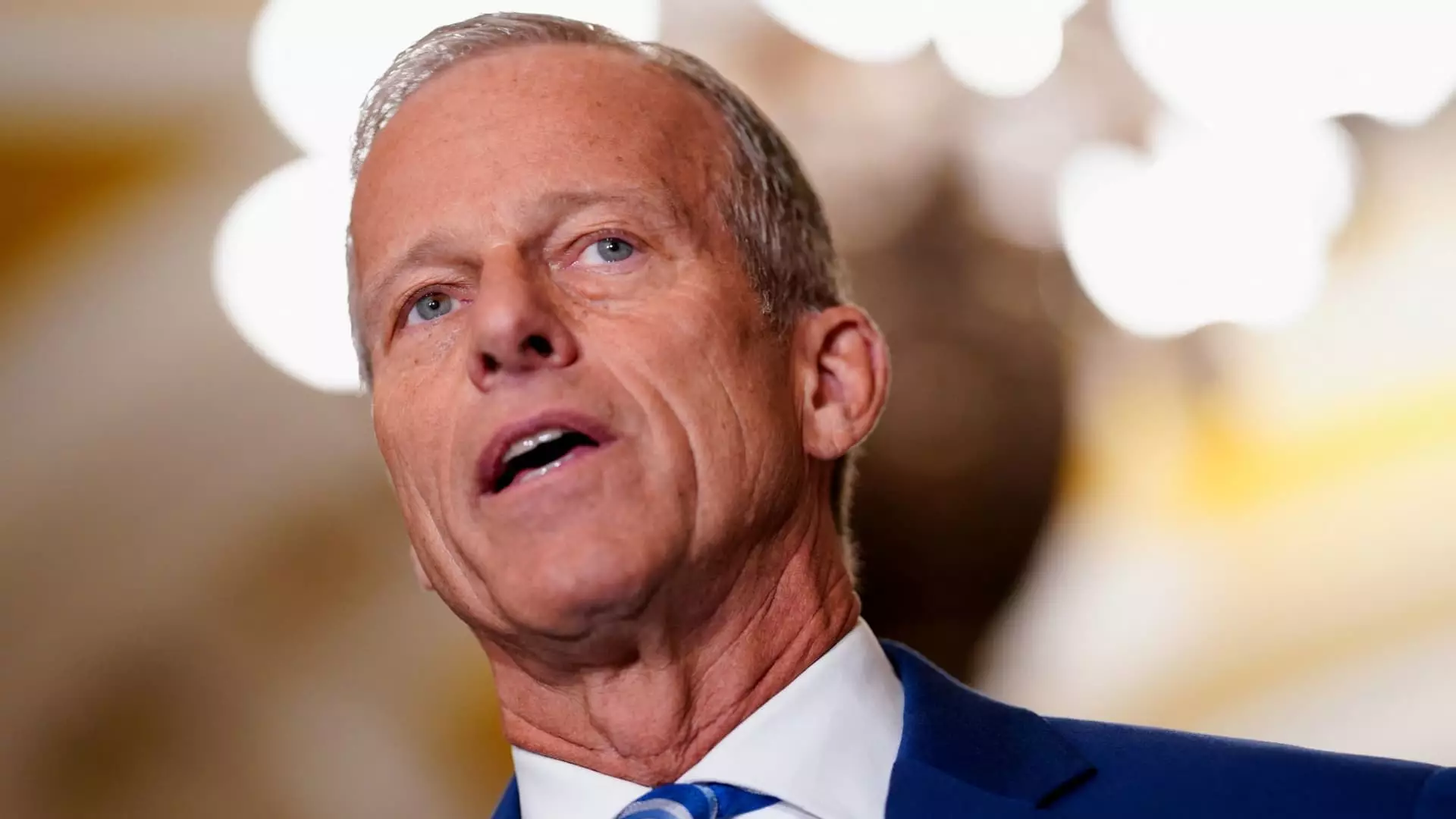The recent Senate procedural vote to advance President Trump’s massive spending bill was a Pyrrhic victory for the Republican leadership, exposing deep fissures within the party and foreshadowing even greater challenges ahead. The 51-49 margin, won only after intense last-minute defections and concessions, signals more than just legislative gridlock—it highlights a Republican Party wrestling with its identity in a post-Trump era, and a Senate struggling to govern effectively. When a bill of such magnitude barely scrapes through a chamber dominated by the same party pushing for it, one must question the sustainability of the leadership’s strategy rather than simply chalk up the victory as progress.
Leadership Under Siege from Within
Republican Senate Majority Leader John Thune’s pledge to deliver this sprawling package by July 4 seems increasingly tenuous given the evident lack of cohesion in his ranks. The fact that senators who had initially opposed the bill—like Mike Lee, Rick Scott, Cynthia Lummus, and even Ron Johnson—eventually succumbed to pressure underscores the fragile nature of party discipline. But this isn’t a triumph; it’s a symptom of growing unrest among GOP lawmakers who are wary of the bill’s content. Their resistance, particularly to cuts in Medicaid and other social programs, reveals an old battle between fiscal conservatism and the populist wing of the party championed by Trump, which often resists entrenched GOP orthodoxies.
Democrats’ Tactical Resistance Is Both Predictable and Principled
On the other side of the aisle, Senate Minority Leader Chuck Schumer’s decision to force a public, exhaustive reading of the 940-page bill echoes traditional Democratic tactics to expose legislative overreach—a move intended more to slow the process than to derail it entirely. This maneuver also challenges the rushed nature of the negotiations and the opaque crafting of such a consequential bill. While this is typical opposition posturing, it cannot be dismissed as mere obstructionism. The Democrats’ fierce objection to Medicaid cuts embedded in the bill reflects broader concerns about protecting vulnerable populations from the radical austerity measures some GOP members evidently embrace. Ultimately, these Democrats are performing a crucial role in maintaining scrutiny over an unwieldy piece of legislation crafted behind closed doors.
The House: Another Quagmire Waiting to Happen
Even if the Senate finalizes this bill, the true test lies ahead in the House, where Speaker Mike Johnson’s slim majority is equally at risk of fracturing. The House has already seen heated debates and near party-line splits over similar legislation, and the current Senate bill’s Medicaid reductions could alienate key Republican members who represent more moderate or vulnerable districts. The legislative nightmare does not end with Senate passage; it only deepens as the bill must reconcile two versions that are likely to diverge further, increasing the chances of procedural delays or even failure.
Trump’s Deadlines and the Illusion of Promise-Keeping
The White House’s insistence on a July 4 deadline to pass this bill reveals the enduring power of symbolic politics but risks turning a complex policy instrument into a mere political prop. Trump’s framing of the bill as a “big, beautiful bill” to be rushed through creates an illusion of decisiveness but risks undermining the democratic process and serious policy debate. The idea that failure to pass the bill equates to the “ultimate betrayal” is emotionally charged rhetoric that ignores the substantive policy trade-offs and the voices of dissent within his own party. A bill that passes through sheer political pressure rather than genuine consensus is unlikely to solve underlying issues and more likely to exacerbate partisan divides.
A Broader Reflection on the Republican Party’s Future
This contentious procedural win is not just about one bill; it is emblematic of a Republican Party locked between Trump’s lingering influence and the pragmatic demands of governance. The battle lines drawn over Medicaid cuts and spending priorities are representative of the wider ideological struggle within the GOP. If Republicans cannot reconcile their internal divisions, their ability to enact cohesive policy will continue to erode, further alienating moderate voters increasingly critical to their electoral viability. As much as this bill is a legislative hurdle, it is also a mirror reflecting the party’s uncertain path forward.
In the end, Thune’s narrow victory conceals more than it reveals. The fragile coalition that pushed this bill over the line is a warning sign that without meaningful compromise and openness to bipartisan cooperation, governance will remain a painful, precarious balancing act for Republicans—a reality that Democrats and the broader electorate should watch closely.

